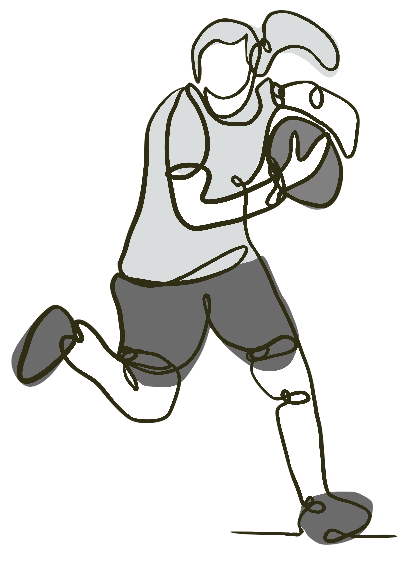Harvard women’s rugby has become a consistently dominant Crimson program in recent history. In the last five years, they have won the National Intercollegiate Rugby Association DI Championships in 2019, 2023, and now 2024, and are currently the defending national champions for rugby sevens. This past weekend, while most undergraduates were busy at the long-awaited Harvard-Yale football game, the rugby team was in New Hampshire preparing to defend their NIRA championship title. Missing the Harvard-Yale game was certainly a disappointment, especially given that the team found themselves in the same situation last year. However, their sacrifice paid off in a big way as they triumphed over Dartmouth.
The revenge game against Dartmouth highlights the budding rivalry between the two programs over recent years. Previously, on Oct. 12, Harvard fell to Dartmouth in the final minutes of the game with a final score of 26-19. The game saw both teams fighting back and forth going try for try until the very end; the NIRA finals played out in similar fashion, but saw the Crimson emerge victorious.
In America, rugby is often eclipsed in popularity by other professional league sports, such as soccer, football, basketball, or ice hockey. However, rugby has steadily grown in prominence, especially with the 2016 inclusion of rugby sevens in the Olympics. Collegiate rugby programs like Harvard’s in particular play a crucial role in elevating the sport’s profile in the United States. At Harvard, rugby has not only been a platform for athletic excellence, but a space for building a tightly-knit community of players who embody the ethos of teamwork, resilience, and strategic brilliance.
Despite the growing publicity of the sport, many Harvard students who venture to Mignone Field for a match are often confused by the structure, style, and rules of the game. During rugby 15s, two teams of 15 members have a continuous 80 minutes to score as many tries (a rugby touchdown) as possible. The ball can only be thrown laterally or backward, erasing the possibility of any last-second hail marys. That being said, teams are allowed to kick the ball forward, similar to punting on 4th down in football. While there are no pads, rugby defense involves tackling the offense in attempts to turn over the ball; there is no down system or period to force a change of position.
Powerhouses like championship MVP Tiahna Padilla ’26 delivered standout performances for the Harvard Crimson as they avenged their Oct. 12 loss to Dartmouth, securing a victory in the championship and reclaiming their spot at the top of the Ivy League. The final score of 19-12 reflected the strength of the Crimson’s defense, and their offensive battle ultimately won the day.
With their recent championship, the Crimson have cemented their legacy as one of Harvard’s most successful athletic programs.
But the team is already looking ahead, with an eye on building for the future. Incoming recruits are excited to join a program with such a rich tradition of excellence, and the current players are focused on maintaining their edge.
Harvard women’s rugby is more than a sports team; it’s a symbol of progress and inclusivity in college athletics. Rugby’s roots at Harvard trace back to the women’s club-level team at Radcliffe College, which fought for years to gain recognition as a varsity program. Since achieving varsity status in 2011, the team has become a powerhouse, inspiring young athletes and fostering a sense of pride in women’s sports at the College. Their success comes at a pivotal moment, as women’s sports are experiencing a surge in visibility and recognition both nationally and globally. The team’s dominance is not just a point of pride for Harvard, but a beacon of what’s possible when institutions invest in female athletes.
These athletes miss tailgates, endure grueling practices, and pour everything into representing Harvard on the national stage. Their story is one of commitment and triumph, and they deserve more than just a passing glance. So, the next time you find yourself free on a weekend, grab a friend, head over to Mignone Field, and witness the magic of rugby firsthand. You might not understand all the rules at first, but you’ll leave with a newfound respect for the athletes who make it all look effortless.
Kate Oliver ’26 (koliver@college.harvard.edu) is a bandwagon All Blacks fan thanks to her Kiwi grandfather.

